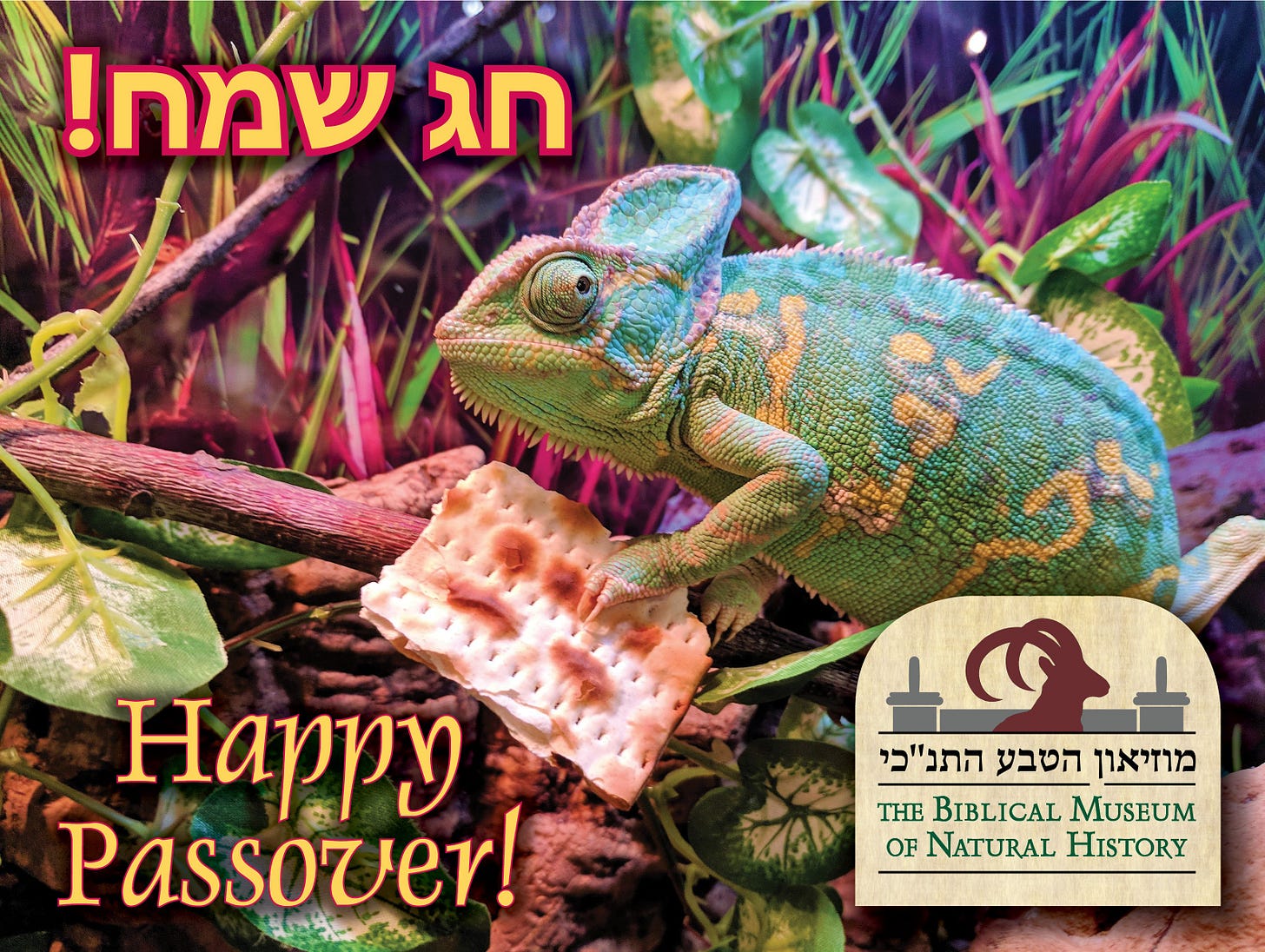Why do we eat Matzah on Pesach?
The answer is not necessarily what you think!
(A timely re-post from several years ago)
Why do we eat matzah on Pesach? It's a very basic, simple and obvious question, so it should have a very basic, simple and obvious answer, right?
The usual answer is the one given in the Haggadah. The Torah commands us to eat matzah on Pesach in commemoration of the Bnei Yisrael being rushed out of Egypt so quickly that their dough did not have time to rise. It's commonly assumed that this is nothing more than a paraphrase of what the Torah itself says. But why would this make matzah so very important? And is it indeed necessarily what the Torah says?
Fascinatingly, Ramban has a very different approach. According to Ramban (Shemos 12:39), it's not the case that they were too rushed for the dough to rise. Ramban is of the view that even if they would have had time, they would not have waited for the dough to rise and make bread. Instead, Ramban understands the Torah as stating that they had no time to bake the dough into matzos, and instead they had to take the unbaked dough and bake it into matzos along the way. Ramban notes that the Bnei Yisrael had already been commanded to get rid of all chametz as mentioned a few pesukim earlier (12:19-20), and thus the passuk 12:39 is to be read in light of that, as follows:
And they baked matzah-cakes of the dough which they brought forth out of Egypt, for it was not leavened (due to God's earlier command); (and they could only bake them now) because they were driven out of Egypt, and could not tarry (and bake them earlier)...
Ramban is thereby arguing with the Haggadah! One book that I saw claimed that Ramban would never have done such a thing, and must have had a different text of the Haggadah. I don't know that that is necessarily the case; Ramban was not entirely averse to arguing even with Chazal, in certain cases. But, at any rate, we are left with the following question on Ramban's approach - if eating matzah has nothing to do with how the Bnei Yisrael left Egypt but was instead a pre-existing command, what was the reason for it?
Let us first note that this is not the first time we see matzah preceding Pesach. Way back in Bereishis 19:3, Lot serves matzos to the angels. Rashi says it was Pesach, and a very non-rationalist person by the name of Nosson Slifkin, in a book titled Seasons of Life, claims that "the observance of Pesach is based on the spiritual powers in force at that time of year," and "matzah is representative of certain metaphysical forces in effect at that time." But the idea of Lot observing Pesach and serving matzah to his guests is reminiscent of a certain video about Eisav making a berachah of hamotzi. Is there a more rationalist explanation?
One possible answer is this: Bread, of the chametz variety, is an Egyptian invention.
In Canaan, the lifestyle was a nomadic society of shepherds. The bread that they ate was matzah - not the hard Ashkenazi crackers, but the original, somewhat softer, pita-like matzah. (Which is why Lot served it to his guests.)
Bedouin woman in Israel making unleavened bread, 1895
Egypt, on the other hand, was a land of farming, which despised the nomadic lifestyle. As Yosef advises his brothers to tell Pharaoh: "You should answer, 'Your servants have tended livestock from our boyhood on, just as our fathers did.' Then you will be allowed to settle in the region of Goshen, for all shepherds are detestable to the Egyptians." The Egyptians had mastered the art of leavening bread, which was unknown to those from Canaan (which may be why Potiphar entrusted everything to Yosef except baking bread - see Bereishis 43:32). Baking leavened bread was of tremendous importance in Egypt - that is why there was a sar ha-ofim, a royal baker. Rameses III has a list containing an amazing variety of breads. But shepherds didn't and don't eat such things - they roam around free, without the burden of heavy ovens and without waiting around for bread to rise.
This would explain why there is an important prohibition against eating leavened bread on Pesach. It is a way of demonstrating that we left Egypt, the land known for its leavened bread, and we became free, like nomads, to travel to the Promised Land.
(Thanks to David Ohsie for his input. For more on all this, see this article from Neot Kedumim, and also this article and this one. )




Love this explanation!
I point this out every year
During Covid, when people started making sourdough from starters and learned what it takes to make a new starter, it becamae easier to understand what a sacrifice it is to get rid of your sourdough starter, as they were commanded to do. These starters, properly cared for, can last for years, and some say, even generations. A new starter may or may not succeed - and at minimum it takes 3 days.
So when we were asked to leave Egypt, we were asked to get rid of the starter that we had there, and to make a new one - that might or might not succeed, a risk we were forced to take. But we couldn't take Egypt's starter with us